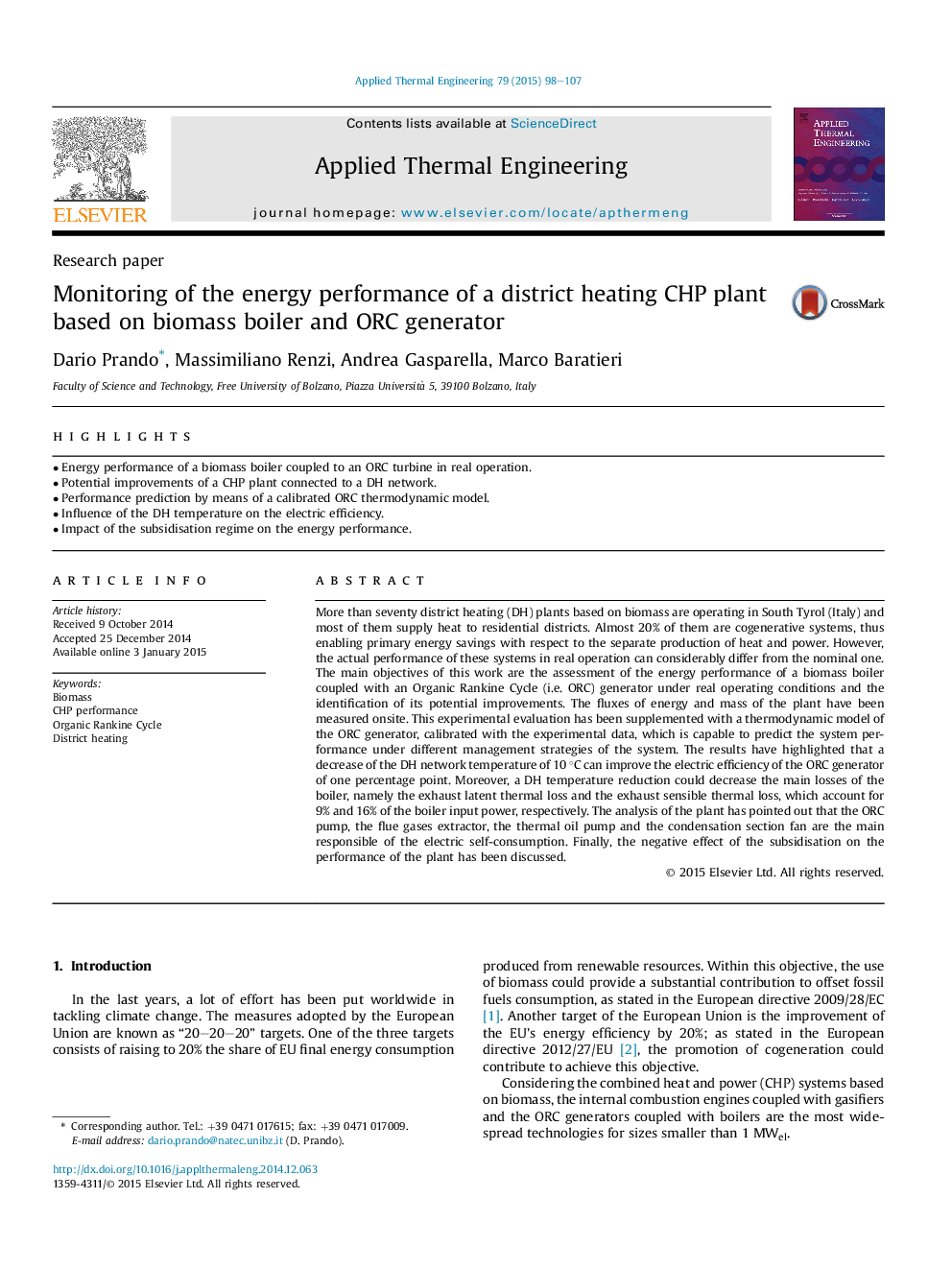| Article ID | Journal | Published Year | Pages | File Type |
|---|---|---|---|---|
| 645835 | Applied Thermal Engineering | 2015 | 10 Pages |
Abstract
More than seventy district heating (DH) plants based on biomass are operating in South Tyrol (Italy) and most of them supply heat to residential districts. Almost 20% of them are cogenerative systems, thus enabling primary energy savings with respect to the separate production of heat and power. However, the actual performance of these systems in real operation can considerably differ from the nominal one. The main objectives of this work are the assessment of the energy performance of a biomass boiler coupled with an Organic Rankine Cycle (i.e. ORC) generator under real operating conditions and the identification of its potential improvements. The fluxes of energy and mass of the plant have been measured onsite. This experimental evaluation has been supplemented with a thermodynamic model of the ORC generator, calibrated with the experimental data, which is capable to predict the system performance under different management strategies of the system. The results have highlighted that a decrease of the DH network temperature of 10 °C can improve the electric efficiency of the ORC generator of one percentage point. Moreover, a DH temperature reduction could decrease the main losses of the boiler, namely the exhaust latent thermal loss and the exhaust sensible thermal loss, which account for 9% and 16% of the boiler input power, respectively. The analysis of the plant has pointed out that the ORC pump, the flue gases extractor, the thermal oil pump and the condensation section fan are the main responsible of the electric self-consumption. Finally, the negative effect of the subsidisation on the performance of the plant has been discussed.
Related Topics
Physical Sciences and Engineering
Chemical Engineering
Fluid Flow and Transfer Processes
Authors
Dario Prando, Massimiliano Renzi, Andrea Gasparella, Marco Baratieri,
